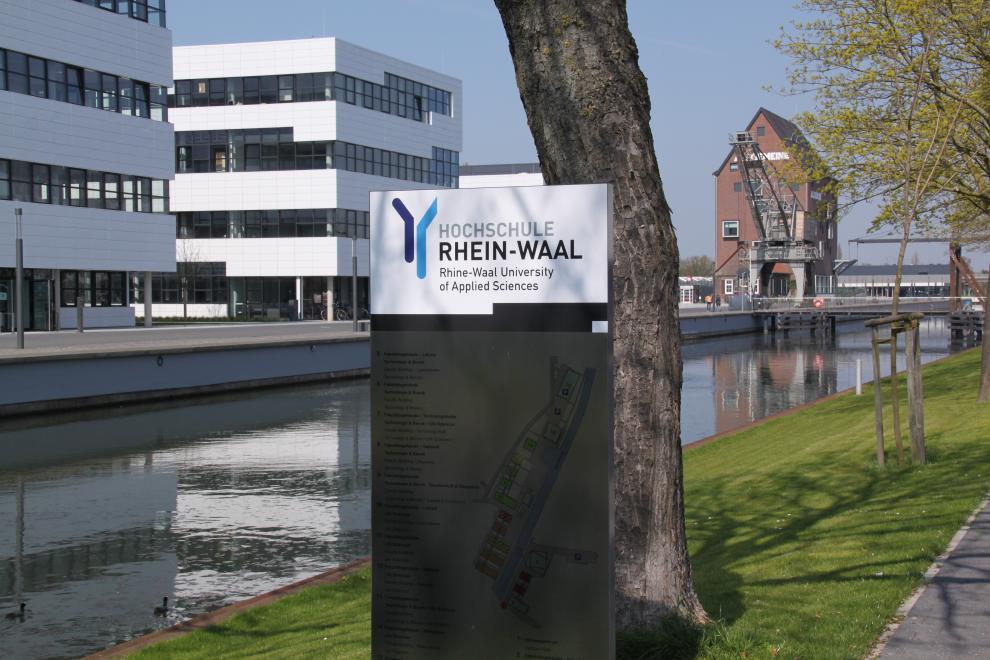Demand for Faculty of Technology and Bionics grows
The high demand for the engineering programmes of the Faculty of Technology and Bionics at Rhine-Waal University of Applied Sciences continues to grow, newest enrolment numbers reveal. Compared to this time last year, new student enrolment in engineering increased by 16% during a time when engineering enrolment across the state of North Rhine-Westphalia saw a statistical decline. Graduation rates from engineering programmes at Rhine-Waal University have continued to increase over the previous years as well. All seven engineering programmes were recently re-accredited, a process that wrapped up with Mechanical Engineering M.Sc. and Bionics M.Sc.
The success of undergraduate engineering studies at Rhine-Waal University of Applied Sciences was further confirmed in a recent state-wide comparison, which revealed more successful degree progress among its students: in other engineering programmes in North Rhine-Westphalia, on average, 33% of examinations were unable to be completed on schedule, as compared to only 29% at Rhine-Waal University of Applied Sciences. In 2017, Rhine-Waal University of Applied Sciences took further steps to improve the success rates of its engineering students by reworking curricula to strengthen students’ foundations in key areas such as maths as well as their proficiency in German. These steps are already beginning to bear fruit.
More than that, these steps were also a reaction of the Faculty of Technology and Bionics to the unique international backgrounds of its students. Eighty-seven percent of its students originate from outside of Germany, from a total of 95 different countries. Among the students from Germany, some 60% are locals originating from Kleve county and adjacent Wesel county. Undergraduate programmes of the Faculty of Technology and Bionics do not have admission quotas (N.C.) restricting the number of students who may enrol. The uniquely international composition of students poses a significant challenge for teaching staff, which is addressed by a low staff-to-student ratio. Indeed, Rhine-Waal University of Applied Sciences boasts the lowest staff-to-student ratio in engineering programmes nationwide, with 38.4 students for every professor. Though statistically speaking every seventh Rhine-Waal engineering student will switch his or her degree programme during their studies, the majority of these students also remain within the faculty. This is recorded as unsuccessful completion of the first degree programme in official statistics, even if they successfully graduate from their second degree programme. This example demonstrates that statistical data often only provide a partial picture.
Nevertheless, graduates from the Faculty of Technology and Bionics remain highly sought-after by organisations in and outside the region. As graduates move out into the world, Rhine-Waal University’s network of contacts grows as well. These new connections come to benefit current students in particular, who can enjoy an ever-increasing number of opportunities for thesis projects and internships.
“Rhine-Waal University of Applied Sciences, a regionally-rooted university with a strong international focus, has dealt with special challenges since its inception. These challenges include, for example, designing appropriate curricula for its unique mix of students, which can be particularly difficult for degree programmes in engineering or the natural sciences,” stressed Dr. Oliver Locker-Grütjen, President of Rhine-Waal University of Applied Sciences. “It’s an issue common to international universities with a strong focus on STEM degrees.” Rhine-Waal University of Applied Sciences will continue to build and expand upon its existing services by providing more support for students during the introductory phase of their studies and pursuing new student recruitment strategies. “Beyond that, the University will also incorporate a stronger focus on career options during the regular study period. This includes, for example, more focus on work-study programmes (dual), more involvement in regional companies and support for startups and budding entrepreneurs,” said President Locker-Grütjen.

